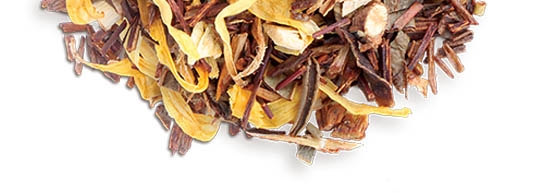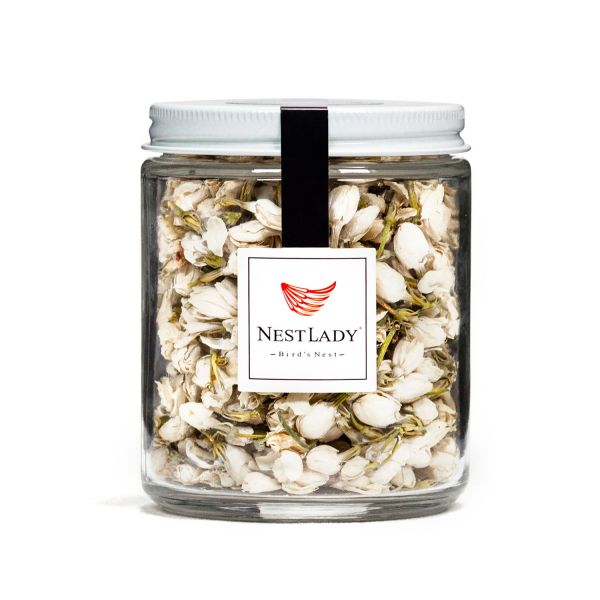NESTLADY Jasmine Tea 25g
- Its fresh aroma and unique taste can improve your mood
- Powerful Antioxidants, Reduce Stress, heart attack, and cholesterol levels
- jasmine tea is prized for its sweetness, barely perfumed fragrance
- Jasmine tea has a calming effect on the nerves, making it suitable for busy professionals and diligent students.
- It helps alleviate stress and promote a sense of happiness while maintaining emotional stability.
- Additionally, jasmine tea also aids in removing dampness and reducing internal heat.

Jasmine Tea
About Jasmine Tea
The perfumed jasmine flowers that flavor jasmine tea usually come from one of two jasmine species: Common Jasmine (Jasminum officinale) or Sampaguita (Jasminum sambac). Both are related to the olive family, Oleaceae, and produce intensely fragrant and sweet-smelling flowers.
The flowering jasmine plant thrives in similar geographic conditions to China’s most famous teas—in high mountainous elevations ranging from subtropical to cool climates. There are at least seven provinces in China that produce jasmine tea, but the most famous and most traditionally scented jasmine tea comes out of the Fujian region.
A traditionally scented jasmine tea is prized for its sweetness, barely perfumed fragrance, and delicately achieved flavor balance between the floral blossoms and the delicate tea leaves. Great care and skill goes into producing a traditional jasmine tea.
How a jasmine tea tastes can depend on many factors, including what tea base is used (green, white or black), where both the tea leaves and jasmine blossoms were grown, what kind of process was used to scent the tea (traditional or commercial), and how the final cup of tea was brewed. Yet there are some common traits used to describe the overall flavor profile of jasmine tea, including: floral, sweet, perfumed, fresh, blossomed, dewy, bouquet, fragrant, delicate and subtle.
How To Use
- Use fresh, pure, cold filtered water. Spring water is the best.
- Typically, jasmine teas are brewed at around 160 to 180 degrees. If the water is too hot, especially for green tea, your tea will release more bitterness and astringency more quickly.
- If you don’t have an electric kettle with temperature control, simply allow your boiling water to rest a minute before pouring it over your jasmine green tea leaves.
- If your tea package has specific recommendations for steeping, use those, but using about 2 grams of loose leaf tea per 8 oz. cup of water is a safe bet.
- Cover your steeping tea to keep all the heat in the steeping vessel.
- Jasmine tea can steep anywhere from 30 seconds to 3 minutes depending on how the tea was processed.
Storage
Keep in dry, cool place and avoid direct sunlight


 English
English  中文
中文 
